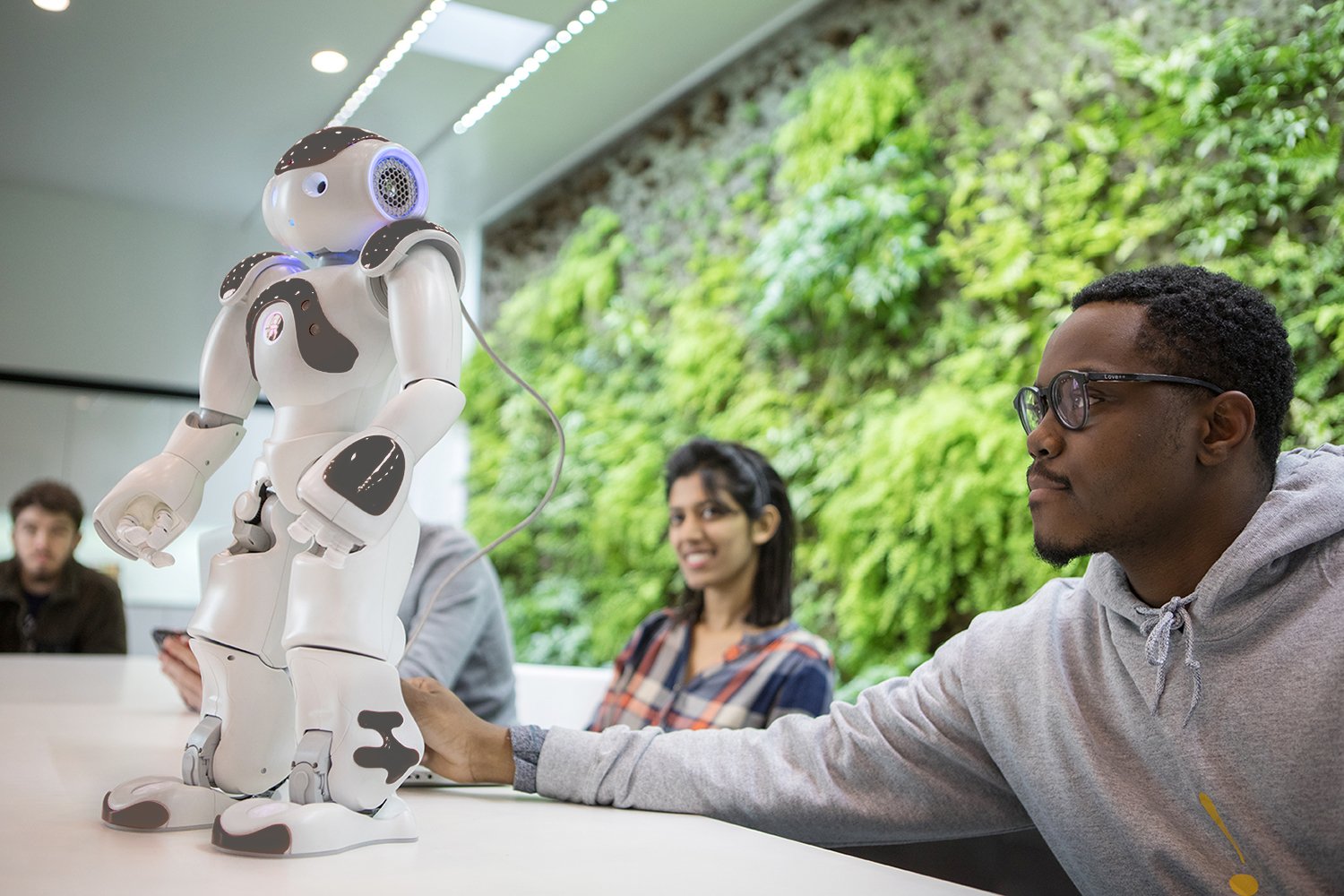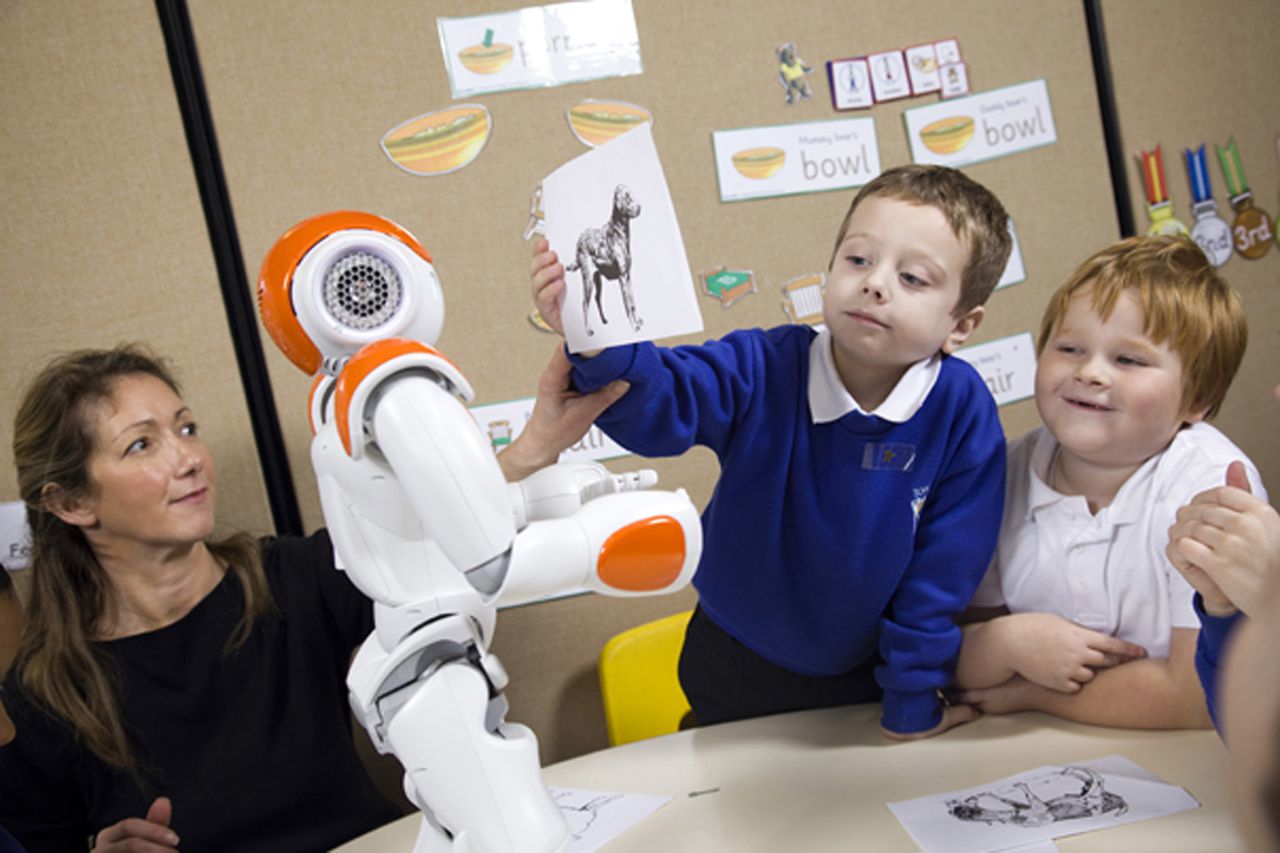By Tiffany Harper

People have long been fascinated by how robots work. And as technology is improving, it also offers new development opportunities for the robotics industry. There are already robots that are considered the future of logistics, while others are used to welcome and greet patients at many hospitals.
But according to reliable services, robots could make their entry into the educational domain too. And this is because the field of artificial intelligence is so deeply intertwined with that of robotics. Even though many educators and teachers do not see this as a plausible option, recent studies and technological advancements contradict this view.
The more the technology is advancing, the greater support it can offer to teachers and educators around the world. But can robots be good teachers? One can’t help but admit that human touch is always needed in the relationship between teachers and students. But can robots come with this human touch? Can they be great teachers?
Robots Would Be More Efficient
One of the things that many teachers argue against is the efficiency of robots. Even though they might answer questions more rapidly than a teacher, the answers might not be as on point as a teacher would answer. But this is a misconception spread around by those who are not accepting the advancements of technology.
A professor from the United States had many teaching assistants who were available for contact online. Students could send them a mail with their questions, and the teaching assistants would reply. But what students did not know is that among all human teaching assistants, there was an AI robot. What’s more interesting is that from all the students he talked to, only one was suspicious. The reason? The rapidity with which the teaching assistant answered the questions. The other students did not even think about the fact that they might be talking with a robot.
This proves a good point: that robots will be more efficient and rapid in solving tasks and answering the questions of students. Moreover, the artificial intelligence that coordinated the robot will make many tailored decisions based on the feedback of students.
Robots could even tailor the entire learning experience to the personality of every student, having an incredible adaptation and flexibility. And the robot can do this without any effort at all, while teachers need to invest time in research and creating the best learning experience. Robots can identify the strengths and weaknesses of every student and support them in overcoming them.
Robots Can Make Great Tutors
Even though it needs to pass some time until everyone accepts the idea that robots could indeed be teachers, the reality is near. This is because there is a shortage of teachers and some universities and schools do not have the funds necessary to offer attractive and motivating salaries. And so, many graduates look for jobs in other domains.
Until robots will be developed enough to ensure social connections, they could support teachers in their job. Teachers that answered surveys on this topic accept the idea of robots being tutors or teaching assistants. They even confess they think robots will make a great job grading the essays or assignments of the students. So, even though many teachers would see robots disrupting the entire teaching process, this is not true. As artificial intelligence is a field that is continuously developing, robots will be more and more improved. This means that new characteristics and features will be developed, besides instant access to any information on the internet. The latest robotics advancements show that robots can indeed be human-like.
Robots Would Not Be Able to Read Social Cues
In the current state of technological advancements, robots would not be able to read social cues. The thing is, as many teachers highlight, teaching is not only about sending information to students. Or about giving them homework and exams, and grading them. No, teaching is much more than that. Teaching is about establishing a social bond with your students by helping them whenever they need it. And sometimes, students are not asking for help at all.
This is why being a teacher might be among the most humane jobs one could have. Spotting those students that need help and supporting them is an essential part of the teaching job. And it is robots that are not prepared for it. Yes, they can rapidly answer questions and offer you the most scientific and validated responses, but they still cannot identify social cues in students.
Humans Are Sociable
Humans are social animals because, since their evolution on the Earth, they lived in groups. We know about those groups of hunter-gatherers who survived because they were part of a group. This means that they often communicated and supported each other with raising children and hunting for food. Moreover, in case of an attack, it is more likely to survive if you are part of a group compared with the situation in which you would be alone.
Humans yearn for social connectedness and belonging. And children who are continuously developing need to find empathy and understanding in a school setting. They need to have humane connections and interactions. Not only because this helps them develop their skills, but also because this is how they learn to communicate and interact with others. Moreover, they are looking for inspiration.
While robots can indeed answer questions more rapidly than teachers, they still cannot inspire. It is an essential difference between information and inspiration, and here is where teachers are way ahead of robots. They have personal experiences that might turn out to be inspirational for many students. On top of this, they can also have a motivational effect in the future for students to find their true professional path in life, as cv writers from Resumes Planet highlight.
Conclusion
There is a polemic of whether robots would make good teachers or not. Some many studies and experiments prove that robots will make good teachers. They can be more efficient and answer students’ questions more accurately and rapidly. But as technology is still developing, robots could for the moment make great tutors.
They can assist teachers in their teaching process by grading students’ essays and assignments. But even though they can be faster than humane teachers, they still cannot identify social cues. Yes, they can tailor the learning experience to every students’ style, but they do this based on the answers they get from them. Humane teachers meet humans’ need for social connectedness and belonging, and here, robots still have a lot to learn. So, the answer to the question of whether robots will be good teachers lies somewhere in between for the moment.
Learn more about Robots with RobotLAB!

RobotLAB is committed to bringing this technology to the students and enhancing their experience with tools that truly bring learning to life. Check our products ready for career readiness


